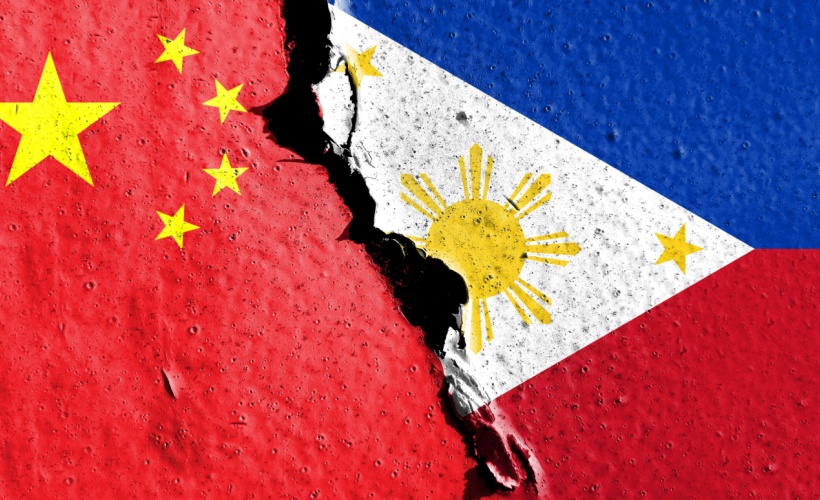By Takahiro Kamisuna and Patrick McAlary
On 26 and 27 May 2023 the Centre for Geopolitics hosted The Indo-Pacific Roundtable 2023 at Downing College, Cambridge. Three panels discussed a range of issues related to the Indo-Pacific region including environmental emergencies, the ongoing impact of globalisation, and Britain’s role in the region.
The geopolitics of environmental emergencies
Dr Alisa Santikarn (Centre for Geopolitics) chaired the first panel, which discussed global and local environmental emergencies that played out beyond state jurisdictions in the Indo-Pacific region. Dr Mari Mulyan (University of Oxford) highlighted the transnational complexities surrounding environmental issues like air pollution, and she highlighted how Indonesia’s recent haze caused environmental and health impacts in Malaysia, Singapore, the Philippines, and Thailand. This brews political tensions between the country that housed the environmental issue and the neighbours who suffer ill effects.
Dr Mulyan also highlighted environmental crimes that take place beyond state jurisdiction (for instance, smuggling timber and wildlife across state borders that ties into financial crimes like money laundering). Such crimes have created tensions amongst the Association of Southeast Asian Nations (ASEAN) over the scope of their jurisdictional power. Such crimes extend to maritime sectors (e.g. illegal fishing) and they feed tensions between China and ASEAN countries. Ultimately, Dr Mari questioned if the ASEAN’s non-interference policy could continue to suppress tensions between ASEAN member-states, concluding that transnational environmental issues have strained the status quo amongst the association’s members.
Dr Liana Chua (University of Cambridge) continued the discussion on environmental emergencies in the Indo-Pacific, arguing that the region has been both perpetrator and victim of the effects of climate change. Following Dr Mari’s consideration of the Southeast Asian Haze (2015), Dr Chua explained how such transnational environmental emergencies obfuscate the socio-environmental impacts of climate change. She argued that victims and perpetrators of climate change should be understood within the causal complexities in the region.
Dr Chua emphasised the “unevenness of environmental emergencies”, pointing out that haze is solely an environmental issue for states like Singapore, whereas for indigenous communities it is one facet of a series of structure problems, including land rights, frontier development, and large-scale surveillance. Environmental emergencies are exceptional events that disrupt ‘normality’ in states like Singapore, but they are an everyday reality for local communities. Dr Chua offered a critical perspective of viewing environmental emergencies in relevance to Anthropogenic variation and complexity, rather than revolving them around the nature protection paradigm.
Professor Heike Schroeder (University of East Anglia) and Dr Alexander Cullen (University of Cambridge) drew on their extensive field experiences in Papua New Guinea and Timor-Leste to highlight the impact of environmental emergencies on local communities. Professor Schroeder highlighted the negative impacts of mining development on the local people in Papa New Guinea and explained how the introduction of modern technologies and commodities had transformed their transitional lifestyle, pointing to the consumption of Coca-Cola by children resulting in dental cavities and obesity, but without appropriate health education and medical treatments.
Finally, Dr. Cullen highlighted how Timor-Leste, which became a sovereign state in 2002, was particularly vulnerable to climate change. He explained that climate change could trigger a series of agricultural and health issues for the population; for instance, it could increase the transmission of mosquito-borne diseases such as malaria and dengue fever due to warming temperatures. He suggested that the challenges in Timor-Leste could be framed as an ‘environmental crisis’ rather than an emergency.
The end of globalisation?
Dr William Figueroa (Centre for Geopolitics) chaired the second panel which interrogated the impact of globalisation from domestic and global perspectives with a focus on the US-China relationship and its wider implications.
Dr Adnan Naseemullah (King’s College London) opened the panel with a discussion on how the institutional dimension of globalisation impacts developing economies. Dr. Adnan explained how global price mechanisms, trade, and foreign investment have shaped inequality within and among nations in the Indo-Pacific. In India, the incorporation of state institutions into the global market encouraged rent-seeking and corruption by political and business elites, while excluding the population from access to wealth. Meanwhile, Turkey has expanded its regional hegemony over the course of the globalisation. The country has invested in poorer Middle East and Central Asian countries and has established a small-scale version of China’s Belt and Road Initiative in the region, ultimately benefitting from regional inequality.
Ben Blend (Chatham House) used US-Chine relations in the Indo-Pacific to plot the trajectory of (de-)globalisation. Although Ben argued that it is too early to know whether globalisation is ending, he suggested that the future political and economic development of the US-China relation could be key. Ben outlined economic and political factors that could make or break globalisation. He noted that the private sector plays a decisive role in mediating economic relations with China while in the political sphere the rise of populism could have an impact. Ultimately, much depends on how domestic politicians link increasing social protection to global movement of capital and neo-liberal economy.
Dr Catherine Jones (St Andrews) framed recent development in globalisation as a shift rather than an endpoint. Global regionalism is a marker of this shift, as are changes in consumer markets. 29% of the global consumer class is in East Asia compared to 15% in Western Europe and the US. This points to a re-centering of globalisation from West to East.
Finally, Professor Chris Marquis (University of Cambridge) addressed the issues of globalisation from the perspective of US-China commercial relations. He argued that control of information by the Chinese government has impacted global business and academia, highlighting how domestic policymaking can yield influence far beyond the national setting. Nevertheless, Professor Marquis had an optimistic view on global business, in which he expected economic openness and integration to function as a driver of globalisation.
The United Kingdom and the Indo-Pacific region
The final panel discussed Britain’s role in Indo-Pacific. Given that the UK has defined itself as having a critical role in the region. The panel unpacked the UK’s role as a mediator or integrator of economic, security, technology, and social values between the Indo-Pacific countries and other nations involved in rivalries between the US and China.
Catherine West (Labour Party MP) discussed the role of the UK Parliament in its relationship with the region, particularly its economic and social relations with China. While China is one of the UK’s biggest trade partners, China’s treatment of minority groups in Xinjiang and Hong Kong, as well as its relationship with Tibet, have posed problems to the UK-China relationship. Her talk outlined the perspective of the UK Parliament in terms of its economic, security, and value-based relations with China and other Indo-Pacific countries.
Doug Chalmers (Emmanuel College, Cambridge) emphasised the importance of Indo-Pacific for the UK in a post-Brexit world. While Chalmers acknowledged that “we need to work with China” on issues like trade and climate change, he explained that the Chinese Communist Party can be coercive in its approach. He noted that China’s aggressive stance towards Taiwan has shifted the UK’s perspective in relation to other Indo-Pacific nations. Finally, Chalmers concluded that alongside its military capacity, Britain could assist with the integration of technological advancement. The development of minilateral military alliances including AUKUS (which consists of Australia, the United Kingdom, and the United States) and GCAP (Global Combat Air Programme) provide examples where the UK is linking the advancement of technology to military industries.







